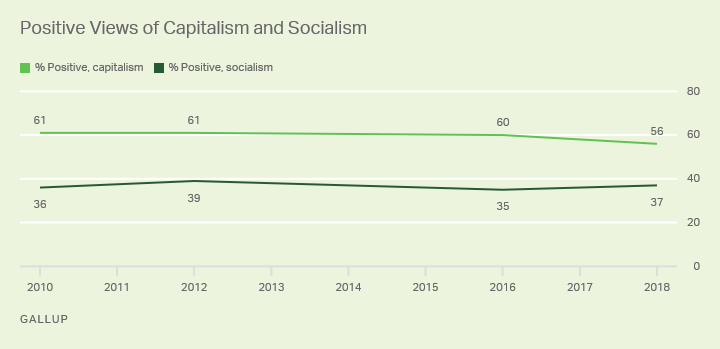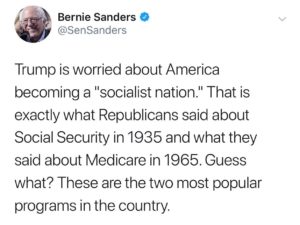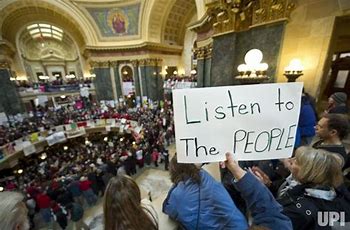Concerns about the ability to lead a financially secure retirement remains a top priority for many Americans, according to a new survey by the American Institute of CPAs (AICPA). In their new Personal Financial Planning Trends Survey, 30% of the CPA planners who participated in the survey said that “running out of money is the top financial concern of clients planning for retirement.”
This primary concern was followed by healthcare costs (77%), market fluctuations (53%), and unexpected costs (50%). Other sources of financial stress were maintaining lifestyle expenses (42%), the possibility of being a financial burden on relatives (22%) and the goal of leaving an inheritance to their children (21%).
While the AICPA survey involved responses from 631 CPA financial planners who responded from August 20 through Sept. 24, 2018, the primary concern of health care costs and portfolio losses helps explain why a more robust political solution is needed to address the concerns of Baby Boomer and older retirees.
The need for a more robust political challenge includes the enactment of a version of Medicare for All and a more concerted effort to address wage stagnation, and its corollary, the ability to contribute more towards retirement.
Yet the reactionary forces in Washington are why more Americans are looking towards new political-economic policies. This includes programs that offer strong social safety net alternatives. This is causing more people to consider some form of socialism, as opposed to unregulated capitalism, as a viable alternative to make Americans financially secure. This argument is also being intentionally confused since the U.S. already has had a form of corporate socialism in place for generations.
A recent article on NPR found that younger people want a form of “socialism” when they are seeking a society with “a strong social safety net and an economy where big banks and billionaires pay — proportionately — their fair share in taxes.” The article also notes that “a remarkable shift has happened in just the past decade, since the 2008 financial collapse — more Democrats now have a positive view of the word ‘socialism’ (57%) than ‘capitalism’ (43%) found last year.” This is not surprising since the 2008 recession, caused by unregulated capitalism, devastated the wealth of millions of Americans. Worse, no one was ever jailed for causing the recession.

The preferences for “socialism,” however it is defined, is stronger for young people than older Americans who favor “capitalism,” the survey found. Among all Americans slightly more than a third (37%) have a positive view of socialism.
This is not surprising since younger Americans are the first generation that has a lower living standard than their parents; most younger people cannot afford to buy their[parent’s house. Younger people are also burdened by college debt, lower paying, part time jogs in a “gig economy.” They also pay a larger percent of their wages to cable TV, internet, phone and gaming companies, which may also be detracting from their greater active participation in political movements that will advance their own financial and social self-interests.
Still, the failures of unregulated capitalism, as evidenced in the long recovery from the 2008 bank-led recession, accompanied by stagnant real wages since the 1970s, show that an alternative political-economic system has distinct benefits. The fact that European countries have greater social policies in place now also shows that alternatives are available. This is all in contrast to the financial insecurity Americans of all ages now face in what is billed as the richest country in the history of the world.
Politics abhors a vacuum, the saying goes, and this vacuum now exists in America’s national political system. The vacuum is between the top 1% and the other 99% of Americans who fear, among other things, a financially secure retirement. Political and social systems also fail when there are huge income gaps.
As the NPR article states, this is why “the Democrats running or thinking about it are embracing Medicare-for-all and the Green New Deal. Both of those ideas have been put forward by the party’s two highest-profile democratic socialists — Vermont Sen. Bernie Sanders, an independent who caucuses with the Democrats, and New York Rep. Alexandria Ocasio-Cortez.” 
New ideas introduced into a reactionary political environment will not get a positive response from the Republicans in power. Still, that does not detract from the validity of the ideas themselves. Medicare for All is financially viable. Cleaning up the environment can create new jobs and restore the quality of water, air and the terrain. New ideas historically have been derided by those in power and the Republican agenda does not include anything that resembles the repair of devastated social programs or reversing income disparity. If anything, they propose the opposite.
This is why socialism, is all of its varied definitions, should be considered as a solution to unregulated capitalism. Just look around and what do you see? There is an alternative. Embrace new ideas. Who knows? The new ideas may even work.











